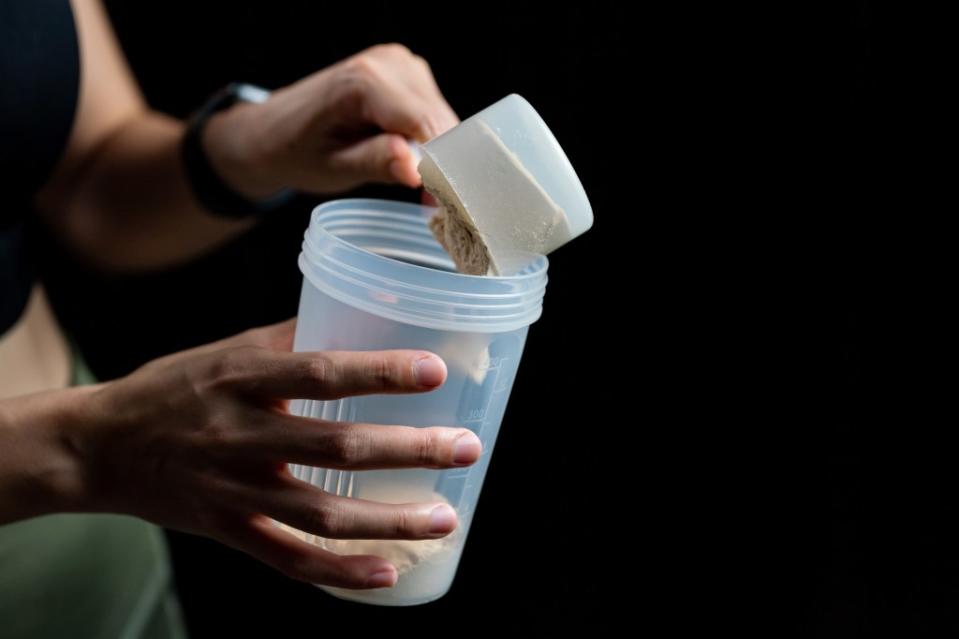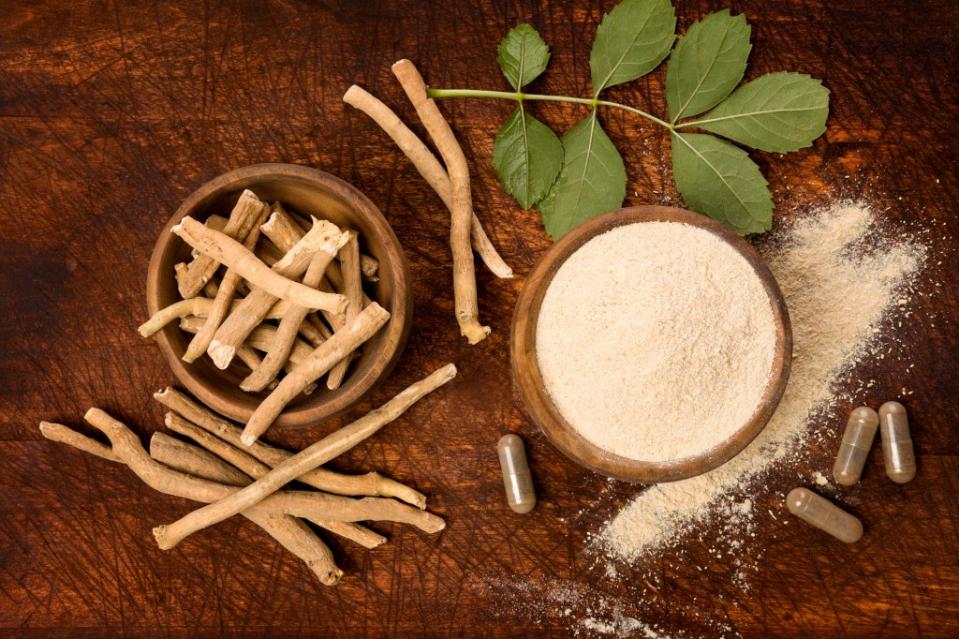I’m a trainer — and these are the only 6 supplements I swear by

Getting stronger and recovering faster could be as simple as adding a few supplements to your daily diet.
That’s according to Hayley Madigan, a UK-based personal trainer and former bodybuilder who says she swears by six supplements to keep her in top-notch shape, according to Business Insider. The svelte fitness fan, who specializes in women’s fitness and has over 500,000 followers, is known for her frank talks about how menstrual cycles affect workouts.
The 34-year-old trainer says she focuses on these supplements to help her feel and perform at her best. Each day, Madigan told Business Insider, she takes: creatine, protein powder, glutamine, ZMA (a mineral supplement made up of zinc, magnesium aspartate and vitamin B6), hydroxymethylbutyrate (also known as HMB) and ashwagandha.

Here’s everything you need to know about the science behind these popular body-boosting supplements.
Creatine
This amino acid is found naturally in muscles and in your brain. You can get creatine through seafood and red meat — but those au naturel sources will keep your body’s level far below what’s found in synthetic supplements.
Lots of bodybuilders and fitness fans use creatine supplements to increase muscle size, strength and performance, according to Mayo Clinic, and Madigan is no exception, as she shares on her Instagram.
Science also backs up this use. Studies have shown that creatine may decrease recovery time — especially when it comes to athletes who are working at high-intensity intervals like sprinting or doing really tough workouts back to back.
The super supplement also has benefits that go beyond the gym. Studies show creatine may help with cognition and brain health, improving performance on cognitive tests in older adults. And there’s even some preliminary research that shows creatine could help reduce wrinkles when applied topically.
Madigan says she takes five grams each day. How much you need will vary based on your size and workout intensity, but in general, this supplement is safe for use and well-tolerated.
Protein powder

You can call it the OG workout supplement — and for good reason! As one of three macronutrients, protein serves several vital functions in our everyday health.
“I have 1.5 scoops of whey protein with my breakfast after working out,” Madigan told Business Insider. “It’s a great way to get a good amount of protein into your diet for not too many calories, and it also helps keep you full.”
The general rule of thumb when it comes to dosing protein is to take 0.8 grams for every kilogram of bodyweight. So a person who weighs 165 pounds (75 kilograms) should consume about 60 grams of protein per day. However, that amount increases depending on your activity level. If you’re lifting weights, running hard or just looking to build muscle, you may want to increase your intake to 1.1 to 1.5 grams per kilogram of bodyweight, according to Mayo Clinic. (Just don’t exceed two grams per kilogram of bodyweight.)
For optimal workout gains, experts recommend consuming around 20 grams of protein within two hours after a workout, according to the National Academy of Sports Medicine. Since many whey protein powders offer about 30 grams of protein per scoop, a simple protein shake after you work out may be all you need.
ZMA
Zinc magnesium aspartate, or ZMA, is believed by some to aid in muscle recovery, help you sleep better and even enhance recovery.
“I take this blend of zinc, magnesium and vitamin B6 in the evening, too,” Madigan said. “Zinc and magnesium are essential minerals involved in various physiological processes, including muscle function and recovery.”
Research is limited on ZMA, however one small study done on men, found that if you were already relatively fit, ZMA did not enhance recovery or aid in muscle growth.
Ashwagandha

This ancient evergreen shrub, which is used in traditional ayurvedic medicine, is purported to help with insomnia and stress. Madigan said she takes it to help her feel calm.
Although studies are small and limited, there is some research to indicate that ashwagandha may help people sleep better. And a series of studies from 2021 showed that taking capsules of the supplement helped to lower perceived levels of stress, according to the National Institutes of Health. Although the supplement seems to be generally safe, the NIH also notes that long-term studies have not been done, and it’s probably best to avoid taking the supplement for more than three months at a time.

Glutamine
The most abundant amino acid in the body, glutamine is an important building block for several crucial bodily functions. Your body typically makes all the glutamine that it needs, but during times of high stress or injury, you may need more than you’re taking, according to Mount Sinai. Glutamine is stored in your muscles and lungs, and can be found in foods such as eggs, tofu and beef.
Although glutamine may reduce infections and support the immune system, there’s less evidence that it will increase muscle mass, although one study showed that it may help reduce muscle soreness and aid in recovery.
Hydroxymethylbutyrate
Madigan takes HMB hoping that it will help her to maintain lean muscle mass and aid in overall muscle function, especially if she’s training particularly hard or under a lot of stress.
Like several of the other items on this list, HMB is produced naturally in small amounts by your body, when your body breaks down leucine, which is an amino acid. Although there’s not a ton of research to support supplementation helping young, healthy people, there are studies that show it could reverse frailty and improve cognitive performance in older adults.

